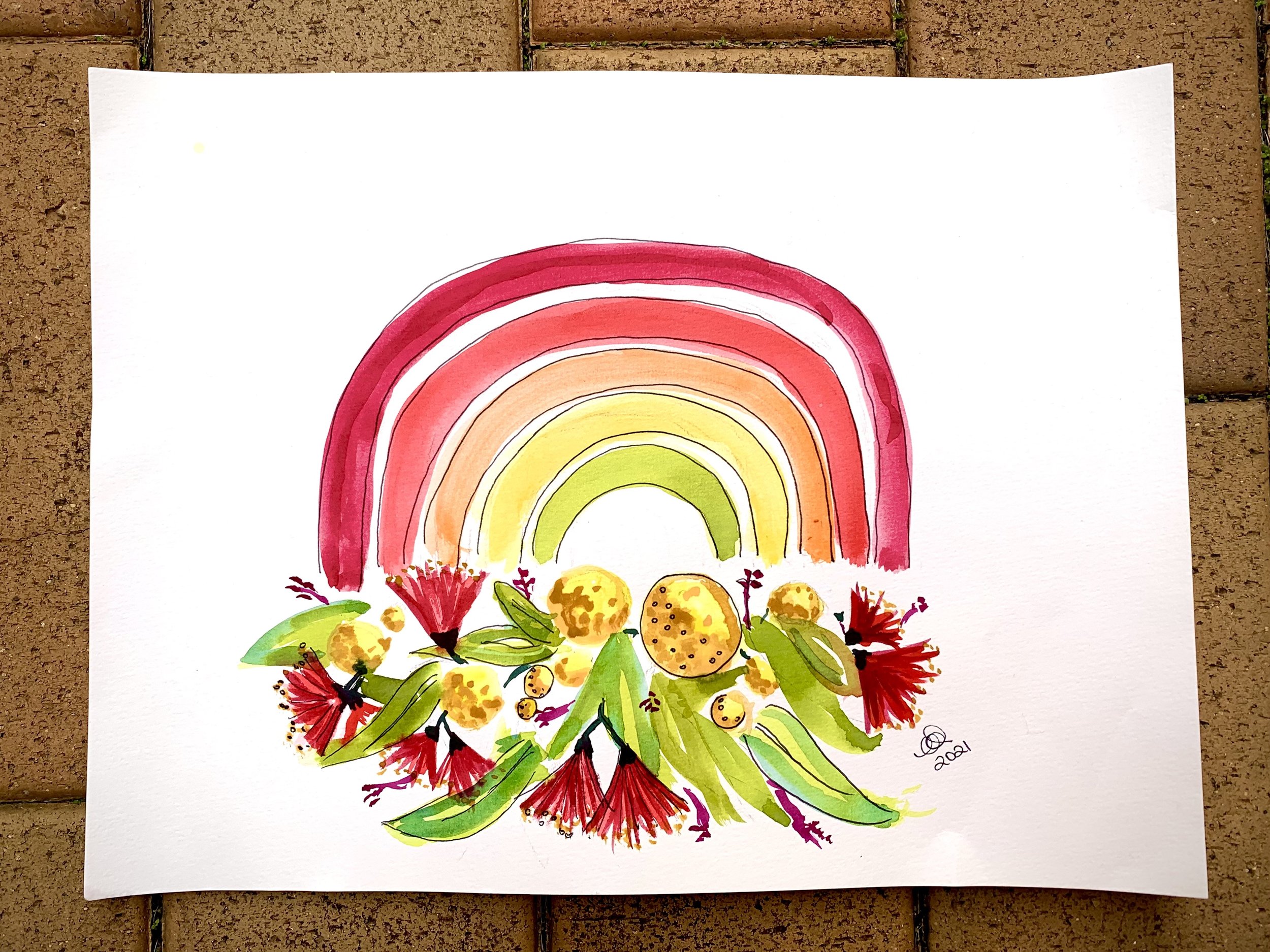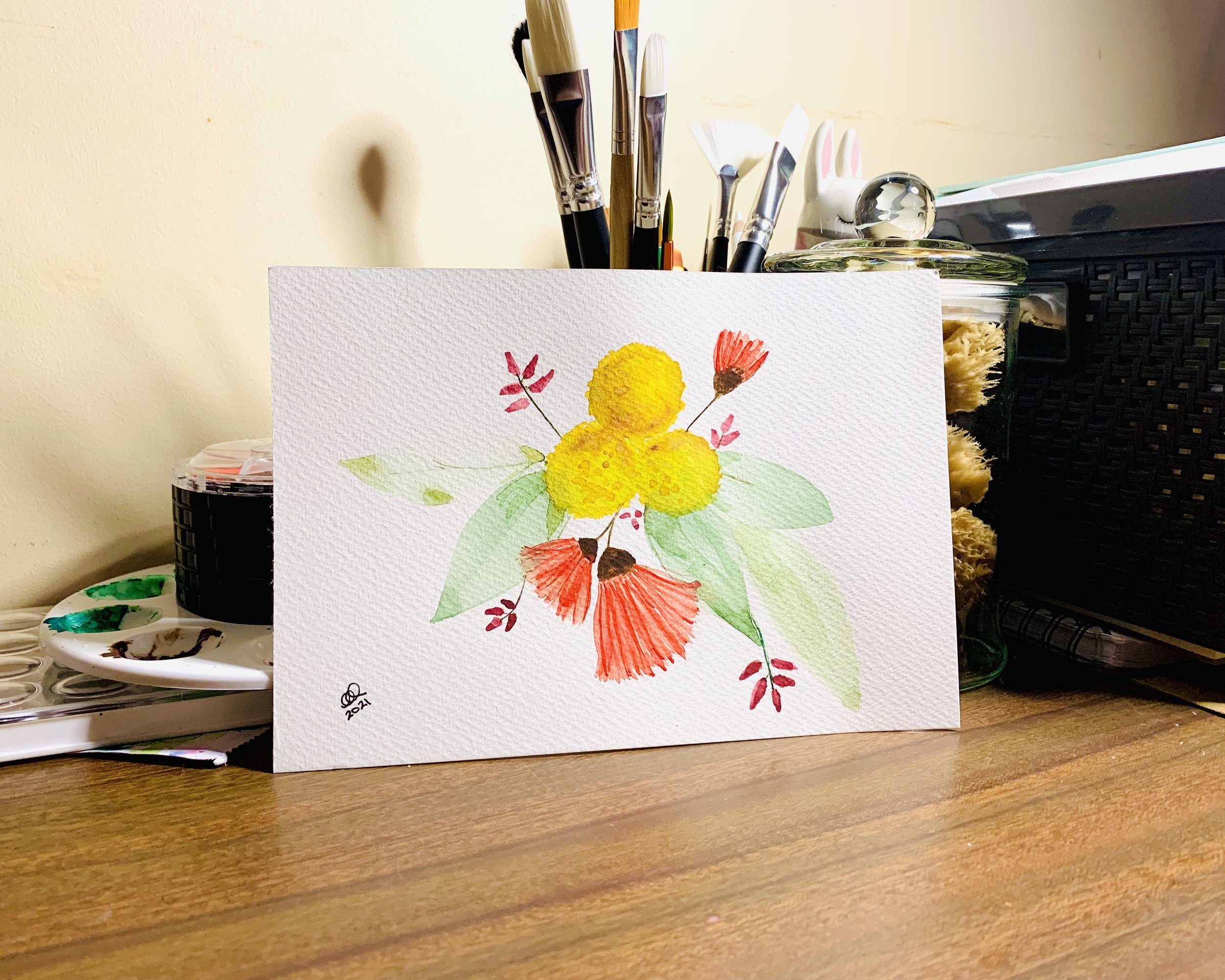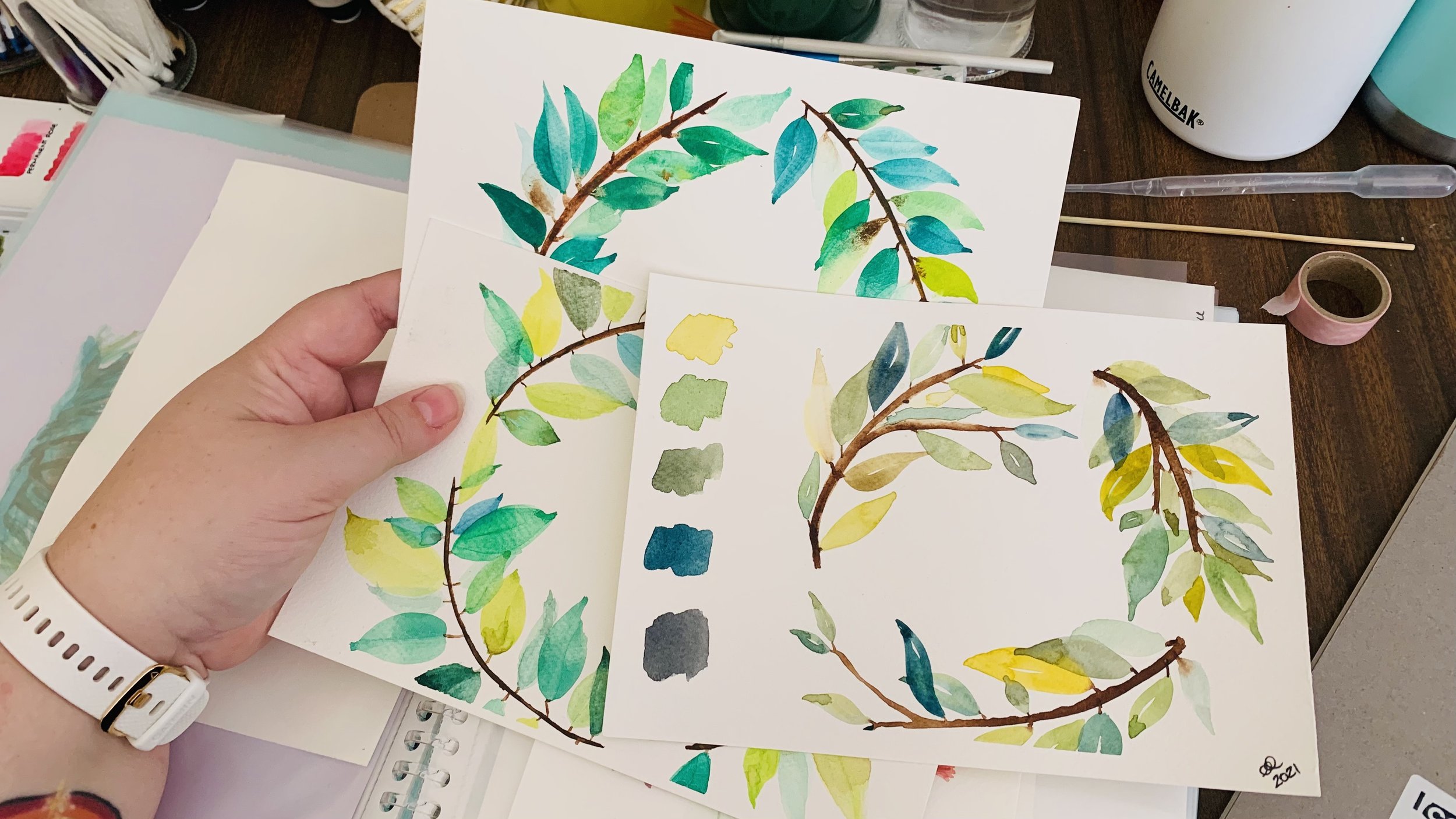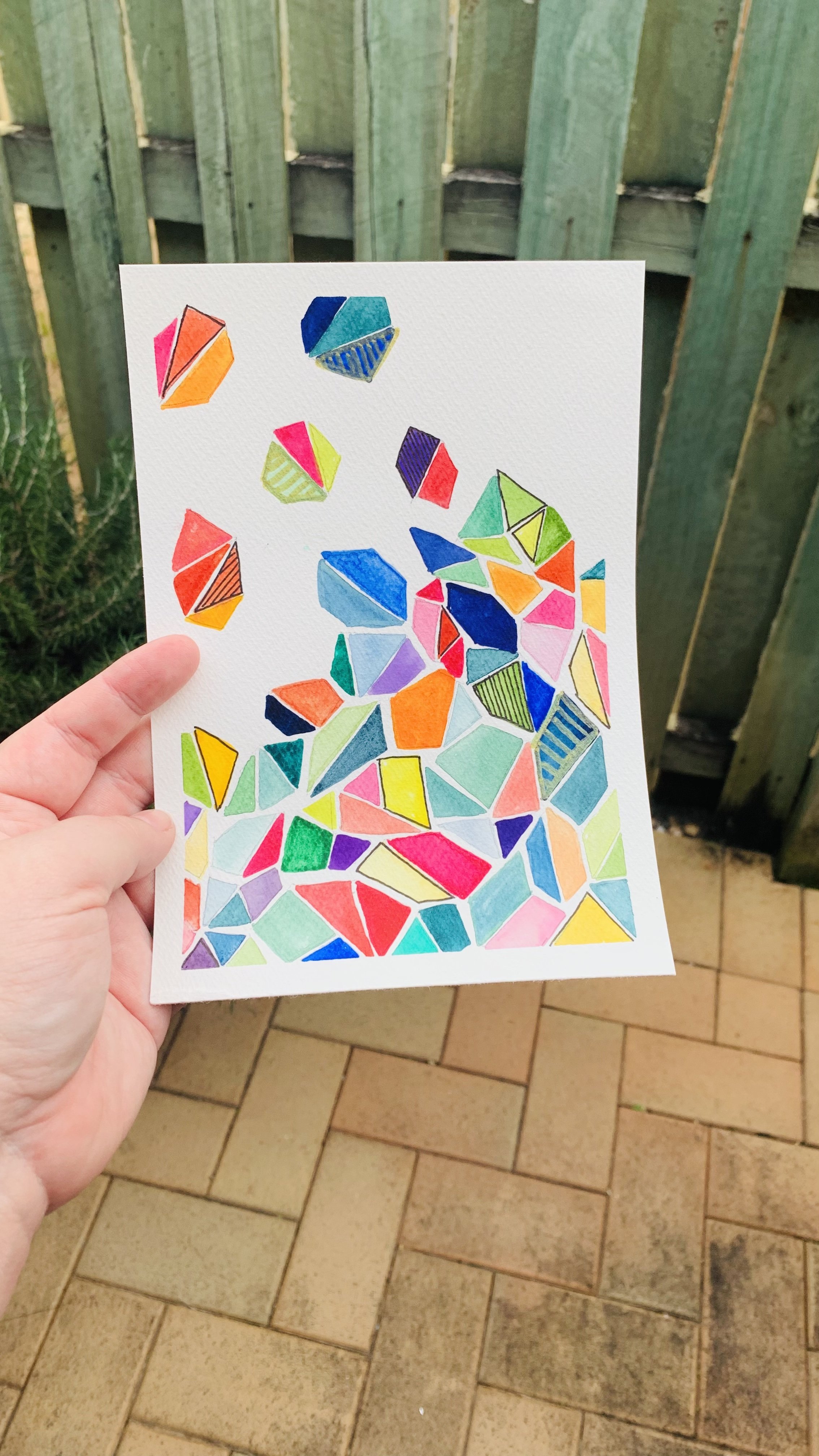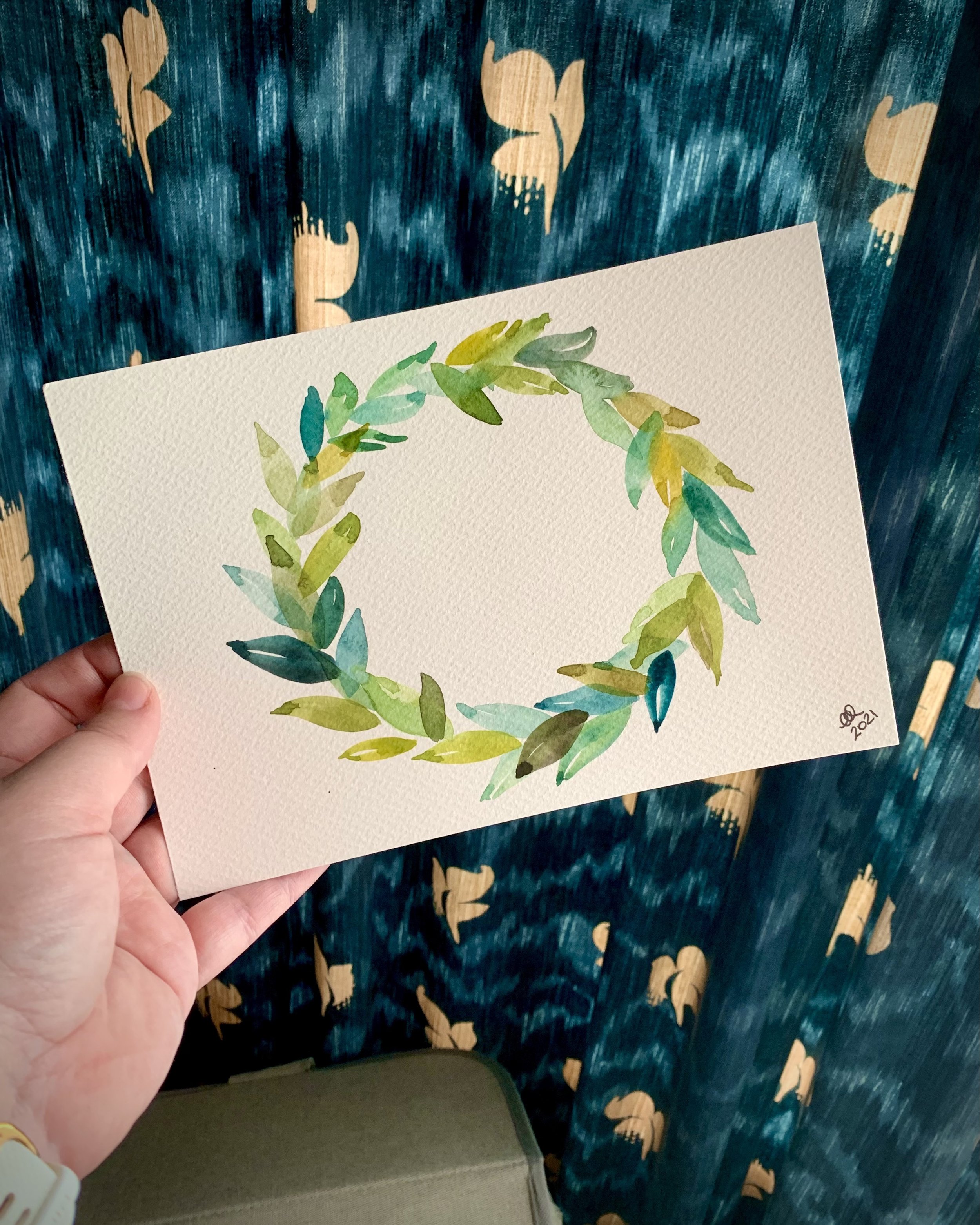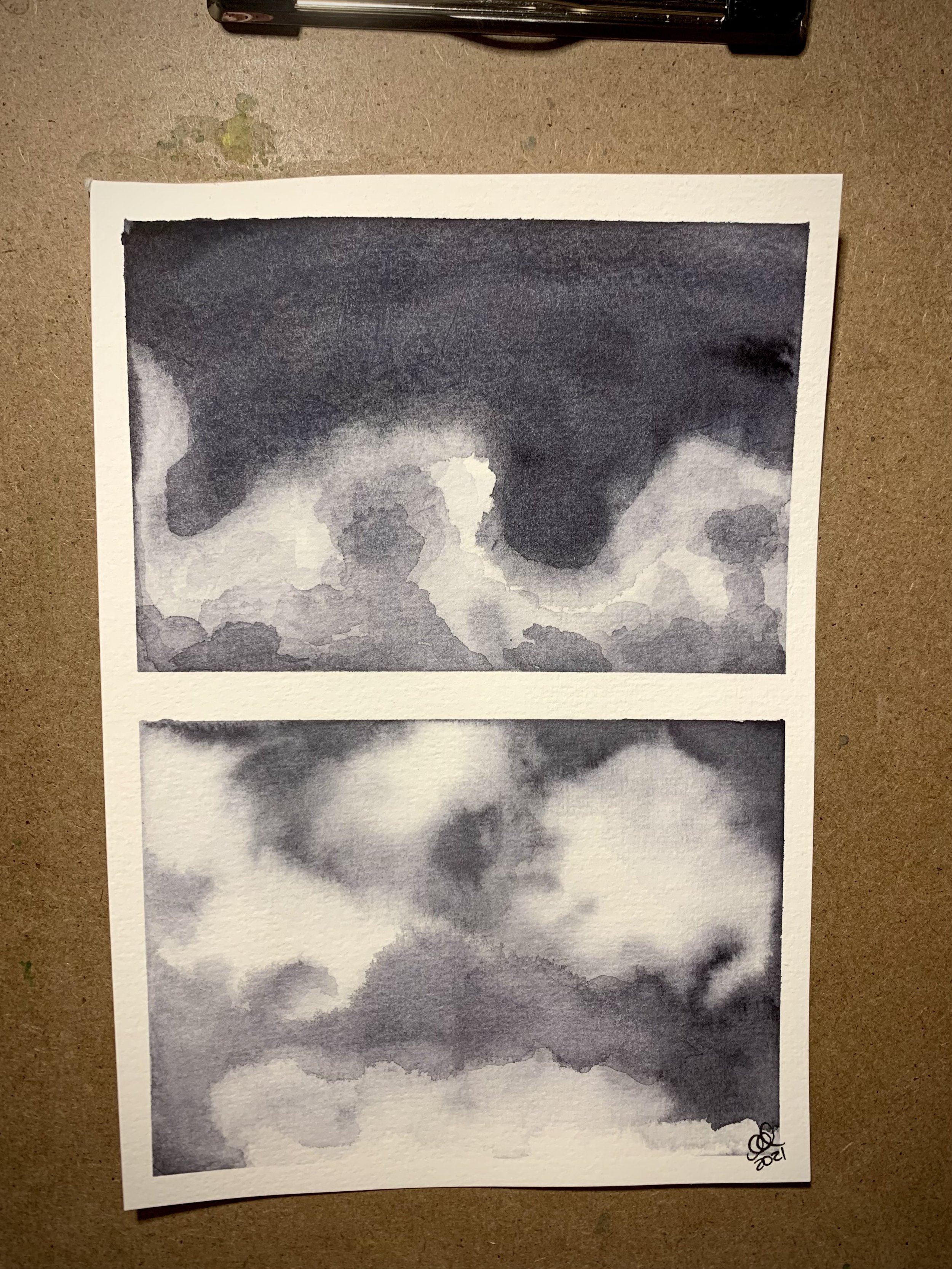Making the decision to become a working artist at the age of almost-forty has been a strange one.
I never really expected to learn something from scratch ever again. Everything I’ve done in the past fifteen years has built on something I did before. A graduate diploma and masters building on my bachelor’s degree. Singing lessons building on learning guitar which built on learning piano which built on learning clarinet. Every job change required me to uplift and transfer the skills I’d learned in my previous roles and apply them to the new environment.
So learning watercolour has been a steep learning curve. In your thirties you get used to being good at the things you do - because in general, you stop doing the things you’re not good at, and you hone the things you are good at into an even finer point. And at age almost-thirty-nine I picked up a paintbrush for the first time in 14 years and thought ‘oh yeah, why not?’
And I wasn’t good at it to start with. I’m sure people will say that there were the glimmerings of promise in what I created, but for me - it was bad.
If not bad then … amatuer. Childish. Not like anything anyone would put on their wall or publish in a book. Certainly nothing like I saw in my mind’s eye.
And even though I was bad at it, even though nothing I painted turned out the way I hoped it would, I was drawn back and back again to it. Maybe it was the siren song of improvement - every time I painted something a second time, or a third time, it got better. Maybe it was the medium of watercolour itself - so unpredictable, so uncontrollable, and it was exactly the unpredictability and inability to control that made the final pieces magic. I loved getting up from a piece thinking ‘meh’ and coming back to it the next day and thinking ‘hey, that’s better than I thought’.
It was strange, this call back to a thing I wasn’t inherently good at. Because that’s how it feels - when you’ve been doing something your whole life, you forget all the hours of study and practice and experimenting and doing you’ve done to get to where you are. It just feels like breathing.
And yet, I kept coming back to it. It didn’t take long for me to know that *this* was the thing I had been looking for. This was the thing I was going to dedicate myself to, that would inspire me, that would excite me, that would get me up in the morning to face each day with inspiration. And within months I knew that it would be my next career.
Which felt crazy! It was never on my radar. Even a year ago, if you told me that I would be pivoting my side-business to art, my brain would have boggled. An artist? Me? I can’t even draw stick figures! I quit art in a fit of pique when I was fifteen because what came out on the page didn’t match what was in my mind.
I saw this tweet recently and found myself wondering whether this is how I would have felt if I’d found watercolour earlier on, and tried to make it a career? I found myself feeling grateful for all the lessons I’ve learned from previous jobs, and life, that mean I know I won't fall into this trap.
For example - lawyering taught me the importance of boundaries, of not working all the time. As a criminal lawyer, there was always more work you could do. I could have worked 24 hours a day and still not done everything it was possible to do to prepare for a case, to write an advice, to mentor colleagues. I liked being a lawyer, and I was good at it, and the payoff I received from it was enough. Until it wasn’t, and like many lawyers in the early stages of their career, burned out. I learned to implement boundaries - with my supervisors but most importantly for myself. Regular ‘go home’ times. Times outside of which I didn’t look at emails. Days - actual full days - off.
It made me more effective at my job, helped me understand how to prioritise work and know what was actually necessary to do the job and what was performative.
And then there’s taking it personally … I can’t tell you how many jobs, how many workplaces I was in where I lived and died by the idea that we were a ‘family’ and that the decisions that were made were about me personally. It took many years, a lot of therapy and understanding that I actually was as good as people said I was to realise that if I didn’t get a job I applied for it wasn’t because I wasn’t good enough. It wasn’t even really about me at all. It was the fact that there was someone else that the hiring manager thought was a better fit. That’s not a personal slight against me, it’s just that there are thousands of other qualified people out there, and they liked one of them better. It’s not within my control - it’s not that I did something wrong or said something wrong or was a bad human. It’s just how it is.
I love making art. Nothing would please me more than being able to make my living from creating works that people want to hang in their homes or offices, or which people want to license for their products, or to put in books. If it ever gets to the stage where it can be a full-time job, I have no doubt that sometimes it will feel like hard work. I have no doubt that sometimes the line between work and play will blend and I’ll have trouble saying no. I have no doubt that sometimes rejection will feel personal, and be demoralising.
But I also know: I can deal with those things, because the first part of my life has prepared me for them.
I know how to set boundaries. I know how to shape my day to switch off from my work, and have a life outside of the thing that I love to do. I’m not afraid of working super hard, and I’m learning how to do it without burning out.
I know that there are as many artistic tastes out there as there are people, and if someone doesn’t like what I’ve created it doesn’t mean that it’s bad. It means that they prefer someone else. I know there is enough room in this world for what I create to be part of it. There are people out there who will like what I create, and my job is to find them, not to try to convince the people who don’t like it to buy it.
And I also know - my worth is not tied to my ability to make money from art. If that’s the way the chips fall, then wonderful. And I’ll certainly be working my ass off to make it work. But I also accept that being a successful full-time working artist is a bit like winning the lottery, and maybe I’ll always have to have a day-job as well. And that’s okay. It doesn’t mean my art is bad. And it doesn’t make me any less worthy.
I don’t know that I would have lasted as a working artist if I’d continued with it as a teenager, or started even ten years ago. There are so many things I have learned from the various things I have done that have prepared me for this - boundaries; how to not take things personally; self-direct learning; discipline; mindfulness; intuition; creativity; resilience. Without these things I would have ended up like the person in the tweet - resentful and bitter that something they loved turned into a burden. Or worse still, given up completely when ‘success’ as I believed it should look, didn’t show up.
So even though it feels incredibly strange to be starting something from scratch at age thirty-nine, something completely unrelated to the career I had before, I’m beginning to realise - this is what I’ve been preparing for my entire life.
Want to receive every blog post direct to your inbox? Find out when my online store launches? Be the first to learn about original pieces for sale? Sign up here.

